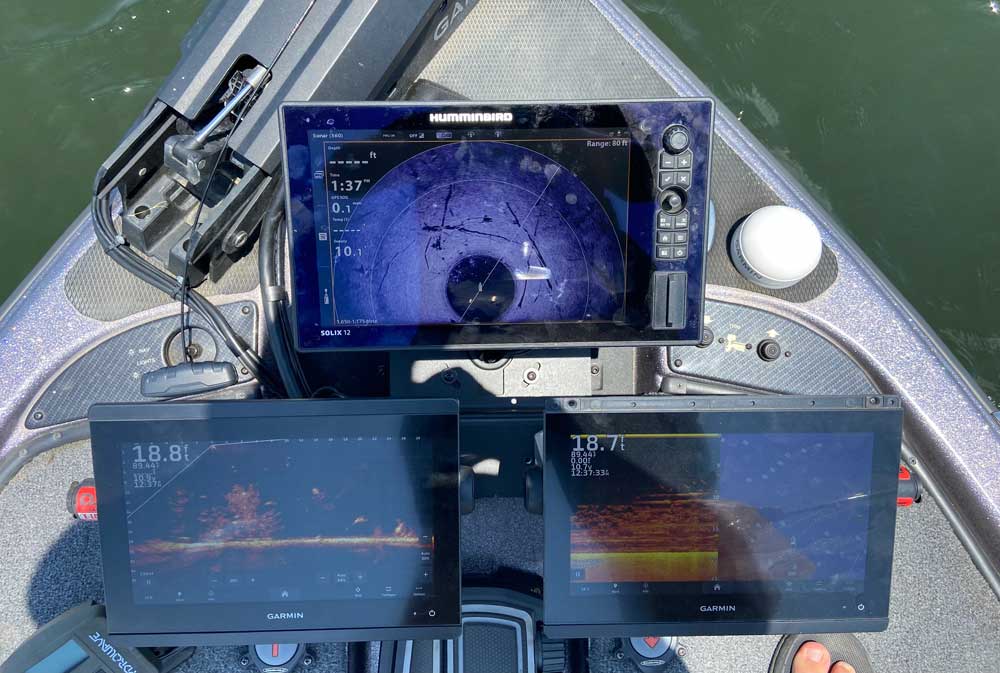
Now that the various major tournament circuits have answered the questions of 2025 rule changes regarding forward-facing sonar (FFS), it will be interesting to see how it all plays out.
This much I know: The technology has changed the game drastically.
Has it changed it for the better? I truthfully don’t know.
I have it and use it on my boat. It is amazing, and I see how effective it is. And that’s what concerns me.
I believe it has put additional pressure on the fish because we can now see them, chase them down and make them bite. The additional pressure is far more than ever before and the long-term effect remains a mystery.
I’m hoping that fish agencies and tournament groups pay attention to that. Without fish – or fewer fish – tournament groups and boat and tackle companies will be out of business. It’s a resource we must protect at all costs and do what’s best for the sport.
I give tournament organizations credit for taking some steps for the 2025 season to put some limitations on the technology.
B.A.S.S. has limited its usage on the Bassmaster Elite Series to just one transducer on the trolling motor and only one trolling motor can be used. We saw multiple transducers and additional trolling motors (on the transom) being used by several Bassmaster anglers last year.
As of yet, B.A.S.S. hasn’t announced any restrictions for Bassmaster Open competitors.
MLF will restrict its usage to two FFS transducers and allows them to be used in one of the three periods each day. Invitational anglers can use it one of the two qualifying days; there is no restriction in the Phoenix, Toyota or college series. High schoolers can’t use it at all, but college competitors can.
Meanwhile, the National Professional Fishing League has imposed a total ban on the use of FFS.
Obviously, there is a mixed bag of options there that will draw criticisms regardless of what each organization does.
We’ll learn a lot more about the technology’s impact on the sport after we get another season under our belt.
The decisions by major tournament groups often trickle down and set the tone for regional and local fishing organizations. So the impact isn’t just on major bodies of water, but on all waters where bass tournament competition is held.
These current decisions matter a lot since you can count on further technological advancements in electronics gear coming in the very near future.
We’ve not seen the end of it, and that’s why I think we must remain cognizant of how all this will affect our fish and fisheries in the years to come.





